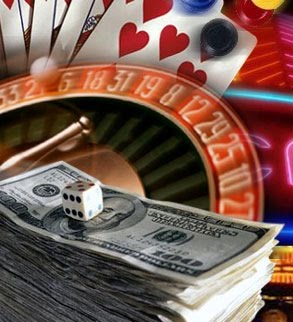
The casino exerted an attraction worthy of psychoanalysts on the immature, childlike minds of last century’s financiers. As a result, “casino capitalism” and its Romanian version, “flea market capitalism,” became not only the instruments that the “brave” used in order to get rich quick, but also autonomous “realities” and basic principles for building a “better” world. The social and economic consequences of this social pattern did not present much interest, not as long as its purpose — amassing large fortunes — was reached. In the end, the world cannot offer everyone equal opportunities. Some will win; others will lose. That is the way it has always been. And, as the ends justify the means, politicians, moralists and even members of the clergy stopped defending common sense and became dealers or roulette players themselves. The new casino is not a public building where gambling is allowed but a new type of society in which the public sphere will become obsolete. As long as the public sphere continues to exist, the casino will have to be kept under control. This is why there is so much hatred against the state, the “abusive parent” who forbids the child from gambling everything. When chance and gamble replace hard work and become golden rules for succeeding in life, old world values and Christian tradition are history. What we are left with is lobbying and marketing.
The global economic crisis — which gamblers who liked to play roulette with the economy have managed to turn into a depression — seemed to have finally changed things. Politicians, taken by surprise by the magnitude of the crisis and the limited intervention measures available, announced a new era of reform. Barack Obama seemed to be one of the most resolute. After the social security law, Barack Obama’s second great reform should have allowed for regaining control over the financial system. This was the very aim of the Dodd-Frank bill, which the U.S. Senate passed last Thursday, July 15. Nevertheless, though the administration is trying to present the law’s passage as a great victory — and the European and Romanian presses are equally supportive — the new act is anything but revolutionary. Not only does Dodd-Frank fail to reinstate the principles of the Glass-Steagall Act — passed under Franklin Delano Roosevelt in 1933 and repealed by Bill Clinton in 1999 — and thus does not mandate the separation of commercial and investment banking, but it also regulates very little of what was initially promised. All of the improvements proposed in the texts approved this spring by the House of Representatives and the Senate have disappeared from the final version. The Wall Street lobby has managed to dictate its own terms. Moreover, the victory of the Conservative Party in Great Britain and the reversal of British economic policies in the city of London have made it possible for Wall Street to impose its principles. Not only does the casino economy survive, it thrives. The consequences are already noticeable.
After continuous negotiations and much pressure, the law became so confusing that even Chris Dodd, the U.S. Senate Banking Committee chairman for whom the bill is named, admits that “We won’t know the full results of what we have done until the very institutions we have created, the regulations we have suggested and provided for, are actually tested.” That is, until a new crisis strikes. Unfortunately, the crisis caused by the practices of casino capitalism has not yet ended. Because it lacks clear principles, the Dodd-Frank Act is nothing but toothless promises regarding the regulation of some crucial spheres such as banking operations, derivative instruments, consumer protection, the activity of rating agencies and hedge funds. Furthermore, the rules for the implementation of the law will be drawn up by several agencies between 2012 and 2014 at the earliest, after the presidential elections in which Republicans hope to regain office.
The evolution of the situation in the United States offers European bankers a great opportunity for pushing for looser regulations. A thorough reform of the banking system has been postponed. Political priorities, such as the U.S. midterm elections, have forced the Obama administration and the Congress to make major compromises in favor of the banking system. Once the critical point has been passed, the casino economy hopes to resume its old practices, which it will conceal just enough to mollify the public. However, the economic consequences of this delay might be even more severe than the aftermath of the financial earthquake of 2008.

“What we are left with is lobbying and marketing.” Very astute observation. Thank you, Pîrvulescu, via Iotcov.